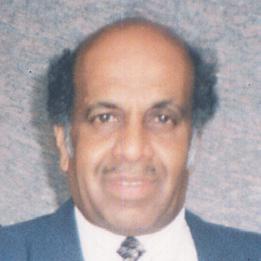
3 minute read
Compelling conformity
from 2012-04 Sydney (2)
by Indian Link
School education expects students to accept what is taught within the boundaries of its curriculum
there is a second list, he notes that the very popular English daily, the Times of India is included.
By NOEL G DE SOUZA
There were three different, but remarkably similar, incidents from three widely dispersed parts of the world. In September 2010, a prestigious school in North China’s Shaanxi province decreed that all female students should have the same haircut whilst male students were forbidden to have their hair waved or dyed. According to the Principal of the School, these measures would make the students more focussed on their studies.
In December 2011, twenty-five youth had, among other things, their punk hairstyles shaved off by the police in the conservative Sharia-ruled province of Aceh in Indonesia. Some of the students are reported to have had pierced ears and earrings.
In March 2012, a student at the Australian Islamic College at Mount Druitt was expelled because he had fashioned his hair into an afro hairstyle. The boy’s father went to court, but the matter was peacefully resolved after the school decided to re-admit the student provided that he cut his hair to an acceptable length.

The above three incidents prove that schools have rules which impose conformity on their students. Might not it be said that schools promote conformity whilst universities, where individual freedom is cherished, promote diversity?
Conformity at the school level is mostly achieved through the local language which is English in Australia, and the regional language in Indian states; however, an increasing number of school students in India are studying in the English medium and have a wider perspective. The National University of Education, Planning and Administration (NUEPA) has found that English is the second-largest medium of instruction in India, and is ahead of Bengali and Marathi.
In schools, textbooks and teachers set the tone on how to perceive countries and events. To get through the school hurdle with a good mark, those who conform are very much likely to do better than those who dissent or challenge the existing ‘knowledge’. Teaching in schools is based on ‘certainties’ and is mostly couched in definitive language.
According to the prestigious Hudson Institute’s Centre for Global Prosperity’s (CGP), in its latest report (March 2012), extreme poverty reduced in the world from 52% in 1981 to 22% in 2008 because of strong economic growth in India, Brazil and China. In 2011, China added a staggering ten million passenger cars to its roads, whilst India added three million. This sort of information may not trickle down to our classrooms for some years, if ever, because countries like India are portrayed as perpetually poor. A student saying otherwise risks being under-rated.
In the last days of the Soviet Union, students refused to answer history exams because they had been taught lies. Elsewhere, such as in India and Australia, history might have got distorted and socalled ‘sanitised’ by such excuses as, ‘In those times things like that happened’.
Scientists have amassed data to show that human activities cause global warming; however the other camp debunks human interference and promotes natural causes as the main generator of global warming
There could be ways by which the public, even in a democracy, are restricted from knowing the truth. In March 2012, the Trinamool Congress government in West Bengal issued orders that all public libraries and public-funded libraries (about 2500) purchase only a restricted number of newspapers. There are just eight in the list. This excludes all English dailies and the very popular Bengali daily Ananda Bazar Patrika please call 0468423860 or email at Australia.restaurant@gmail.com

There has been an angry backlash from friends and foes alike. It has been rightly called an attack on democracy and on free speech. However, Derek O’Brien, a Trinamool Congress Rajya Sabha MP, has denied that this is the case. Claiming that
There are two topics, both with political overtones, which are currently dividing the educational world. The first of these is Charles Darwin’s theory of evolution. The attacks on Darwin in the nineteenth century seriously damaged his reputation and health, with these coming from religious organizations.
The attacks on Darwin now emanate from ‘creationists’. Depending on the school where one studies, a student is obliged to take a stand on one or other way of thinking. The situation is similar with regard to global warming. Scientists have amassed data to show that human activities cause global warming; however the other camp debunks human interference and promotes natural causes as the main generator of global warming. A student might feel obliged to side with one or other camp.
The West Bengal Government of Mamata Banerjee has decided to remove Marx and Engels, the founders of communism, from school history textbooks. This purge is seen as an affront by the communist party in West Bengal. The ruling Trinamool Congress says that Marx and Engels cannot be included at the expense of Mahatma Gandhi and Nelson Mandela.
Students have the freedom in Australia and India to learn, but should also have the freedom to express themselves.









